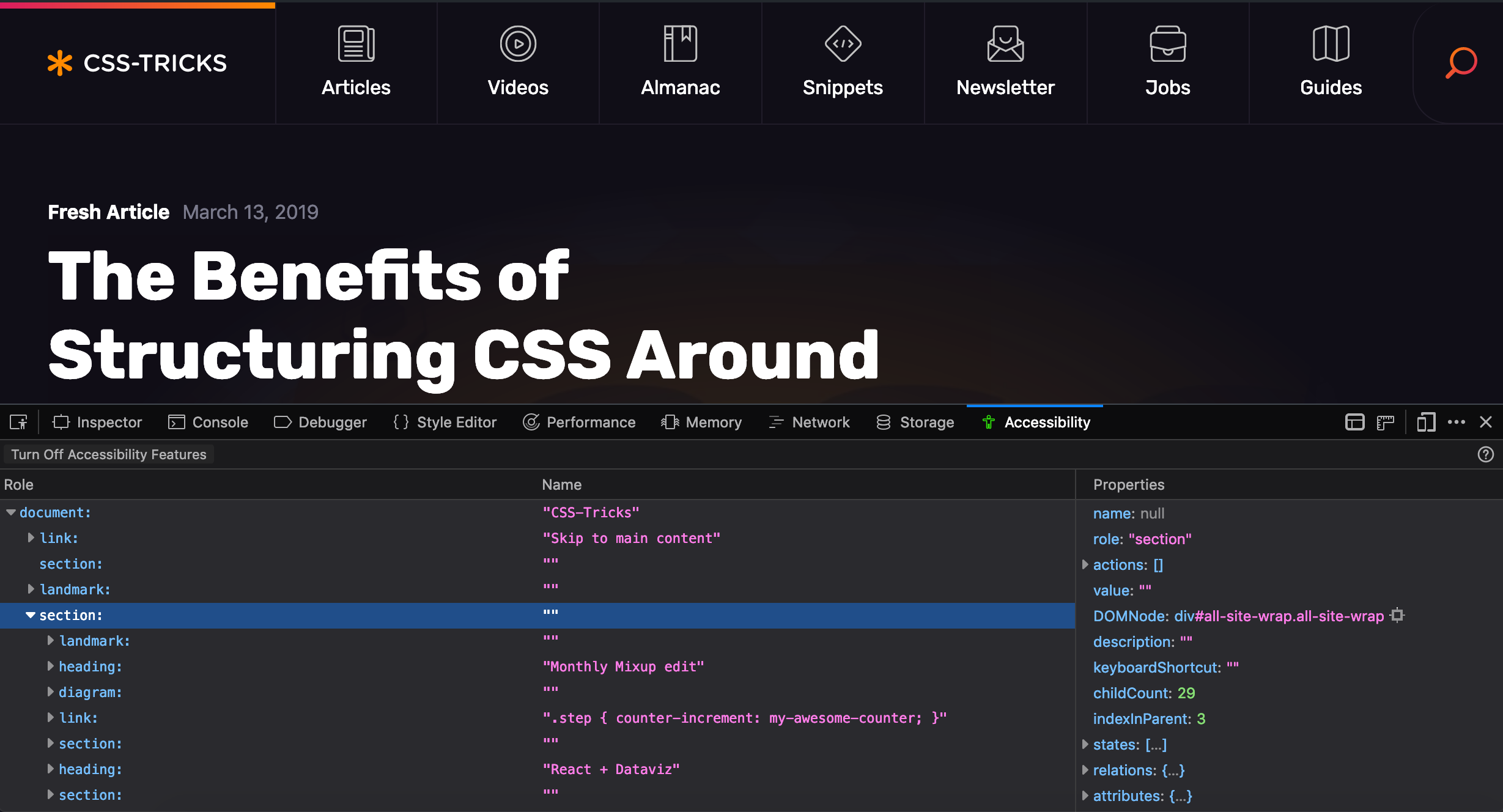Some Notes About Accessibility
Earlier this month Eric Bailey wrote about the current state of accessibility on the web and why it felt like fighting an uphill battle:
As someone with a good deal of interest in the digital accessibility space, I follow WebAIM‘s work closely. Their survey results are priceless insights into how disabled people actually use the web, so when the organization speaks with authority on a subject, I listen.
WebAIM’s accessibility analysis of the top 1,000,000 homepages was released to the public on February 27, 2019. I’ve had a few days to process it, and frankly, it’s left me feeling pretty depressed. In a sea of already demoralizing findings, probably the most notable one is that pages containing ARIA—a specialized language intended to aid accessibility—are actually more likely to have accessibility issues.
Following up from that post, Ethan Marcotte jotted down his thoughts on the matter and about who has the responsibility to fix these issues in the long run:
Organizations like WebAIM have, alongside countless other non-profits and accessibility advocates, been showing us how we could make the web live up to its promise as a truly universal medium, one that could be accessed by anyone, anywhere, regardless of ability or need. And we failed.
I say we quite deliberately. This is on us: on you, and on me. And, look, I realize it may sting to read that. Hell, my work is constantly done under deadline, the way I work seems to change every year month, and it can feel hard to find the time to learn more about accessibility. And maybe you feel the same way. But the fact remains that we’ve created a web that’s actively excluding people, and at a vast, terrible scale. We need to meditate on that.
I suppose the lesson I’m taking from this is, well, we need to much, much more than meditating. I agree with Marcy Sutton: accessibility is a civil right, full stop. Improving the state of accessibility on the web is work we have to support. The alternative isn’t an option. Leaving the web in its current state isn’t fair. It isn’t just.
I entirely agree with Ethan here – we all have a responsibility to make the web a better place for everyone and especially when it comes to accessibility where the bar is so very low for us now. This isn’t to say that I know best, because there’s been plenty of times when I’ve dropped the ball when I’m designing something for the web.
What can we do to tackle the widespread issue surrounding web accessibility?
Well, as Eric mentions in his post, it’s first and foremost a problem of education and he points to Firefox and their great accessibility inspector as a tool to help us see and understand accessibility principles in action:
Marco Zehe is on the Firefox accessibility team wrote and about what the inspector is and how to use it:
This inspector is not meant as an evaluation tool. It is an inspection tool. So it will not give you hints about low contrast ratios, or other things that would tell you whether your site is WCAG compliant. It helps you inspect your code, helps you understand how your web site is translated into objects for assistive technologies.
Chris also wrote up some of his thoughts a short while ago, including other accessibility testing tools and checklists that can help us get started making more accessible experiences. The important thing to note here is that these tools need to be embedded within our process for web design if they’re going to solve these issues.
We can’t simply blame our tools.
I know the current state of web accessbility is pretty bad and that there’s an enormous amount of work to do for us all, but to be honest, I can’t help but feel a little optimistic. For the first time in my career, I’ve had designers and engineers alike approach me excitedly about accessibility. Each year, there are tons of workshops, articles, meetups, and talks (and I particularly like this talk by Laura Carvajal) on the matter meaning there’s a growing source of referential content that can teach us to be better.
And I can’t help but think that all of these conversations are a good sign – but now it’s up to us to do the work.
The post Some Notes About Accessibility appeared first on CSS-Tricks.
